Conference(Plenary Sessions)

- Opening ceremony / Keynote lectures
- Pre-Session
Social Inclusion and Cultural Institutions: Three Cases in Asia - Session1
Well-being through Arts and Culture - Session2
A Dialogue in Diversity: Inclusion of Differences, Prospects in Cultural Collaboration - Session3
Inclusive Design as a Driving Force of Culture - Session4
Building Connections:
Our Cultural Ecosystem - Session5
Digital Creativity: A Revolutionary Force for Our Social Challenges and Values - Roundtable
The main part of Creative Well-being Tokyo’s international conference is the titular conference itself, which features a conference and subcommittee on five key themes related to promoting diversity and inclusion in arts and culture: well-being, diversity, inclusive design, accessibility, and building connections and places of belonging. The conference welcomes policymakers, researchers, practitioners, and creatives not only from arts and culture fields but a range of disciplines and areas to raise common issues and challenges from an international perspective.
Dates and Venue
- Dates:
- July 2 (Saturday) – July 4 (Monday), 2022
- Venue:
- Auditorium, Heiseikan (Tokyo National Museum)
*The Opening ceremony, Keynote lectures, and Plenary Sessions will be live-streamed online. Sign-in unnecessary for online viewing. Free to watch online live-stream during July 2 - 4, 2022.
Participation Fee
Free
Accessibility and Support
English-Japanese simultaneous interpretation, sign language interpretation (Japanese–Japanese sign language), text-based support (UD Talk), advance availability of materials
Capacity of the venue
171 persons (First-come, first-served basis)
Session
K-1 Keynote lectures
July 2 (Saturday) , 2022. 1:00 p.m.–3:00 p.m.
Opening ceremony / Keynote lectures
Creative Well-being Tokyo: International Conference on Open Access to Culture 2022 is a platform, comprised of the International Conference, Showcase, Short-term Camp, and Networking programs, from which to learn to realize a symbiotic, complementary society through the arts and culture. An Opening Ceremony and Keynote Lectures will be held to launch the platform where Ms. Justine Simons OBE (Deputy Mayor, Culture and the Creative Industries, London, UK) will first speak on initiatives in London, a twin city of Tokyo since 2015. Second, Mr. Yutaka Osugi (Professor, Tsukuba University of Technology), an expert on sign language and deaf studies, will speak as a representative working on the Creative Well-being Tokyo project headed by Tsukuba University and cultural facilities in Tokyo. Finally, Mr. Takaya Matsuda (CEO, HERALBONY Co., Ltd.) will present on the emergence of new cultures in social welfare generated from the interface between art and business. These three keynote speeches will offer new prospects in our societies, cultures, and ecosystems that are driven by the diversity and universality inherent in the arts and culture.
Opening Ceremony Speakers
- Yuriko Koike(Governor of Tokyo)
- Katsuhiko Hibino(President Tokyo University of the Arts)
- Eriko Osaka(President, National Museum of Art, Director General, The National Art Center, Tokyo)
Video Message
- Andrew Parsons(President of the International Paralympic Committee)
Keynote lectures Speakers
Justine Simons OBE (Deputy Mayor for Culture & Creative Industries, London)
Justine Simons OBE is Deputy Mayor for Culture and the Creative Industries.
She has played a central role in the cultural revitalisation of London, leading the design and evolution of the capital’s culture strategy since the inception of the GLA. In 2015 she was awarded an OBE for Services to Culture in London.
Justine founded and is Chair of the World Cities Culture Forum – a major initiative on culture and the future of cities, involving 40 global cities. She led the capital’s biggest ever festival for the London 2012 Olympic and Paralympic Games with over 5000 events and is now overseeing its legacy, East Bank a major new culture and education district in the Queen Elizabeth Olympic Park.
She has shaped London’s Investment Strategy for the Creative Industries covering film, fashion, games and design. She has designed new policy innovations including the UK’s first Creative Enterprise Zones, a new Culture at Risk Office to protect fragile cultural infrastructure, a new London Borough of Culture Award and the first Cultural Infrastructure Plan.
Justine established the Fourth Plinth as the UK’s biggest sculpture prize, is co-chair of London’s Commission for Diversity in the Public Realm and chaired the Mayor’s Suffrage Statue Commission which led to the first statue of a women in Parliament Square, suffrage campaigner Millicent Fawcett. More recently she has been spearheading the Let’s Do London campaign to support London’s recovery from the pandemic.
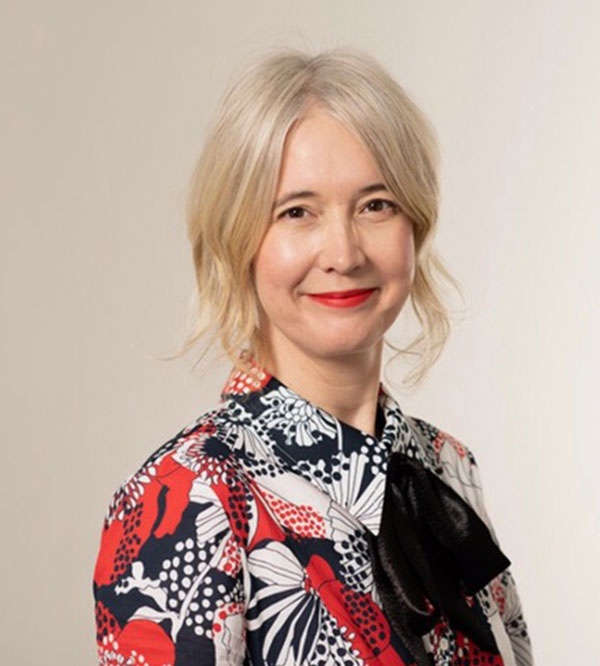
Yutaka Osugi (Professor, Research and Support Center on Higher Education for People with Disabilities, Tsukuba University of Technology / Sign language linguistics / Deaf studies)
After his encounter with sign language at the age of eighteen, Yutaka Osugi underwent a complete transformation in terms of his linguistic culture. After working as a member of a theater company, educator at a vocational school, university teacher in the United States, and administrator at an organization for the d/Deaf, he joined Tsukuba University of Technology in 2006. Alongside teaching sign language linguistics and deaf studies to d/Deaf students, Osugi conducts fieldwork on historical changes and regional differences in sign language. Through his global activities and involvement with the Japanese Federation of the Deaf, Japan National Center of Sign Language Education Japan Institute for Sign Language Studies, Japanese ASL Signers Society, Foundation Modern Puppet Center, and Comité International des Sports des Sourds, he works to gain greater social recognition for sign language and Deaf culture.
http://www.deafstudies.jp
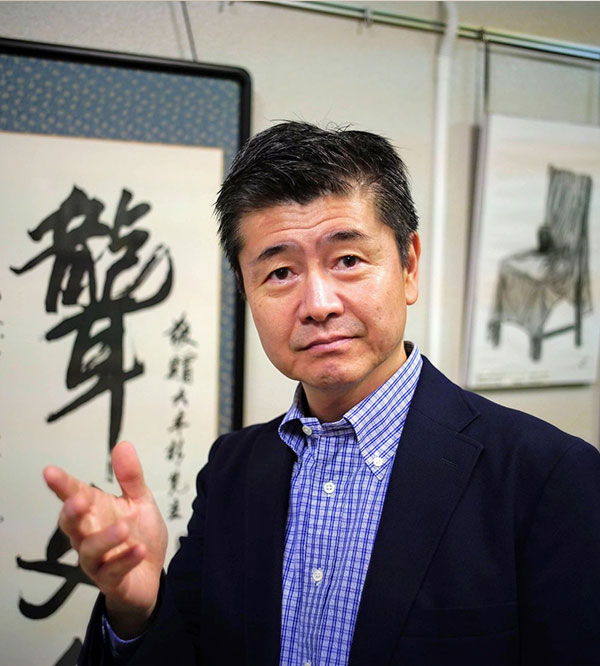
Takaya Matsuda (CEO, HERALBONY Co., Ltd.)
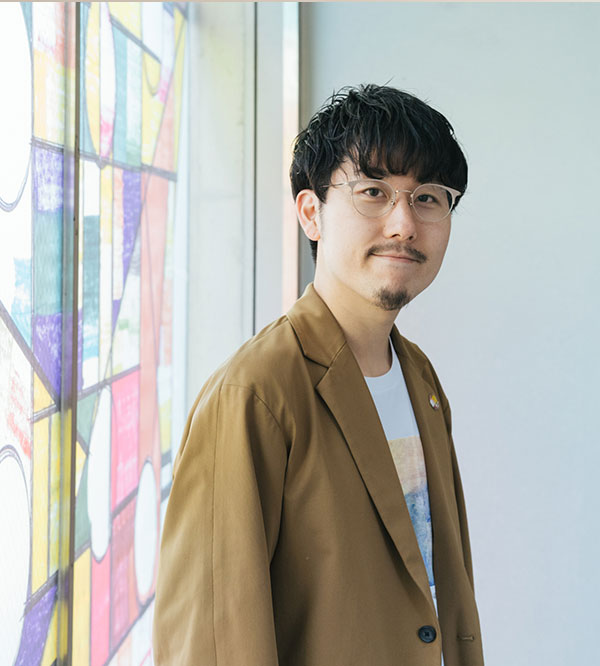
Accessibility and Support
English-Japanese simultaneous interpretation, sign language interpretation (Japanese–Japanese sign language), text-based support (UD Talk), advance availability of materials
P-0 Plenary sessions
July 2 (Saturday), 2022 . 3:20 p.m.–4:45 p.m.
Pre-Session
Social Inclusion and Cultural Institutions: Three Cases in Asia
Culture and arts organisations around the world are now stepping up their efforts to reduce inequalities in society. This has been particularly visible in the last decade, with a growing interest in the diversity of arts and culture and their function of connecting people, and the need for activities that contribute to people’s wellbeing.
In this pre-conference session, we will first share the premise of the theme of this international conference: wellbeing, diversity, inclusive design and accessibility. Each presenter will then talk about social inclusion activities and challenges in museums and galleries since the 2000s in Japan, Taiwan and Singapore.
Speakers
Sawako Inaniwa (Senior Curator, Learning, Independent Administrative Institution National Museum of Art)
Sawako Inaniwa holds master’s degrees from Aoyama Gakuin University and University College London. After working at the Museum of Modern Art, Kamakura & Hayama, she joined Tokyo Metropolitan Art Museum to oversee its newly launched learning and communication projects. With a focus on social issues, she planned and ran community-based initiatives like the Tobira Project and Museum Start iUeno, and Creative Ageing Zuttobi, a response to the rapidly aging society. Her exhibitions at the Tokyo Metropolitan Art Museum include Kubbe Makes an Art Museum (2015). Inaniwa took up her current position in April 2022. She is the author or co-author of several books in Japanese and, in English, co-author of New Museum Practice in Asia (2018) and Designing Society Through Art: A Collaboration Between Citizens and Cultural Institutions (2021).
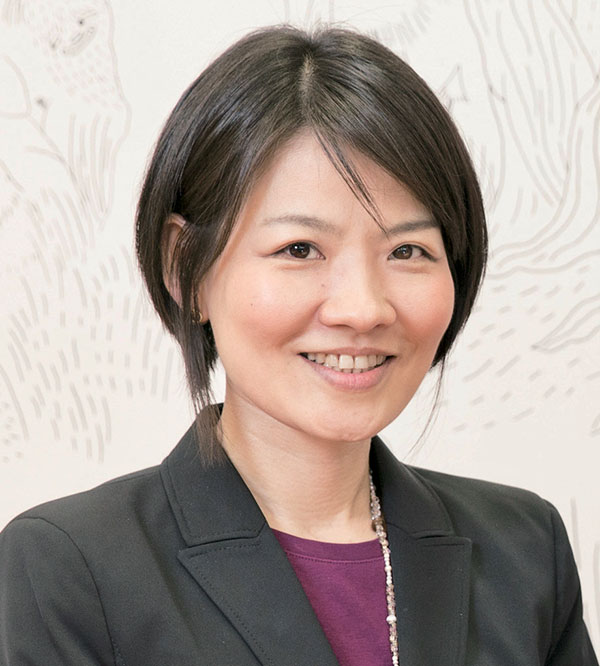
Chieh-Chyi Lin (Assistant Curator, Public Service and Education Division/National Museum of Taiwan History)
Chieh-Chyi Lin acquired an MA in environmental design at the Yale School of Architecture, and studied on the museum studies program at New York University. She joined the National Museum of Taiwan History in 2006, specializing in exhibition and museum education. In recent years, Lin has been involved in promoting cultural accessibility, equality, and social inclusion. She actively seeks to collaborate with opportunity centers for the physical and mental disabled as well as elderly care organizations in the hope of enabling more people to make good use of museum resources.
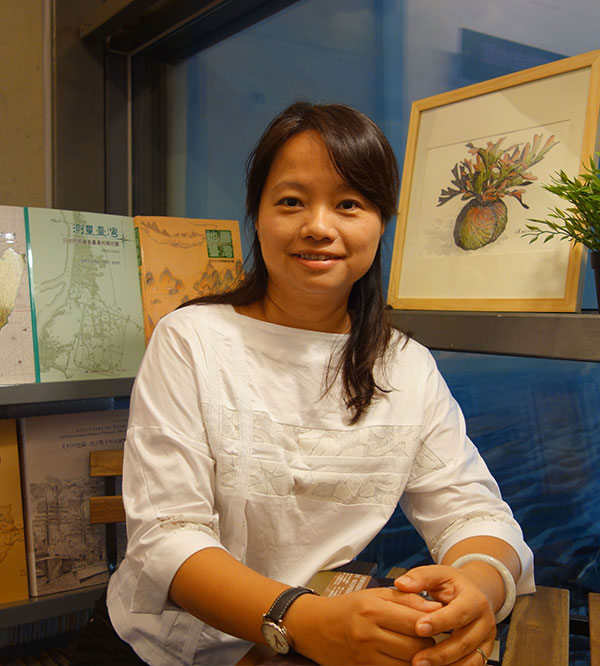
Alicia Teng (Assistant Director, Community and Access, National Gallery Singapore)
Alicia Teng currently heads the community and access team, which oversees access initiatives, volunteer management, community engagement, and the art and wellness programs at the National Gallery Singapore. Since 2018, she has led the development of various access programs and pioneering initiatives such as the Access Guide, Slow Art, and Calm Room, working in close partnership with community stakeholders to better engage with diverse communities at the Gallery.
Teng’s twelve years of art administration experience include marketing, sales, and development for the Singapore Arts Festival organized by the National Arts Council, and partnership development at National Gallery Singapore, contributing to the successful solicitation of multiple major gifts from corporate donors. She also led and established the National Gallery’s corporate sponsorship strategy and framework prior to her transfer to community and access.
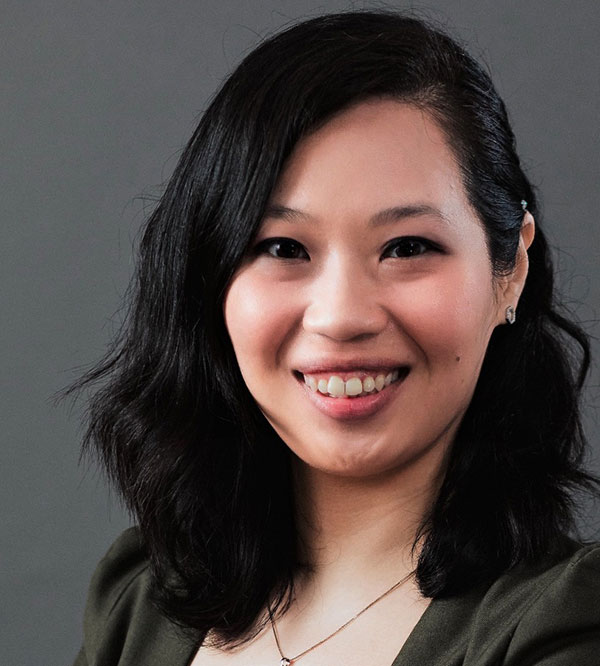
Accessibility and Support
English-Japanese simultaneous interpretation, sign language interpretation (Japanese–Japanese sign language), text-based support (UD Talk), advance availability of materials
P-1 Plenary sessions
July 3 (Sunday), 2022 / 10:30 a.m. –12:00 p.m
Session1
Well-being through Arts and Culture
The World Health Organization constitution states: “Health is a state of complete physical, mental and social well-being and not merely the absence of disease or infirmity.” Well-being has attracted attention recently as something that indicates the subjective happiness of an individual in society in ways that cannot be expressed by GDP. In particular, approaches to sustainable well-being differ significantly depending on our respective connections with the society to which we belong and the cultural values of each region in the world. This session shares the fundamentals of our well-being offered through the arts and culture by learning from research and creatives in the field to, ultimately, explore further possibilities of well-being for the future.
Speakers
Yuko Nakamura (Film director / Writer)
Yuko Nakamura graduated from Keio University’s Faculty of Letters with a degree in philosophy. Following her work as an editor at a philosophy publisher, she joined TV MAN UNION. She creates narrative documentaries that delve past the surface of the modern world, dealing with such topics as art, architecture, and philosophy. Her films include Memories of Origin: Hiroshi Sugimoto (2012) and A Room of Her Own: Rei Naito and Light (2015, official selection Hot Docs 2017). Nakamura’s essay “We Are Here: Contemporary Spaces for Mothers” was serialized in the literary magazine Subaru and then published as a book, and subsequently adapted into an augmented reality film shown at Theater Commons ’21. In recent years, her work has focused on femininity and caregiving.
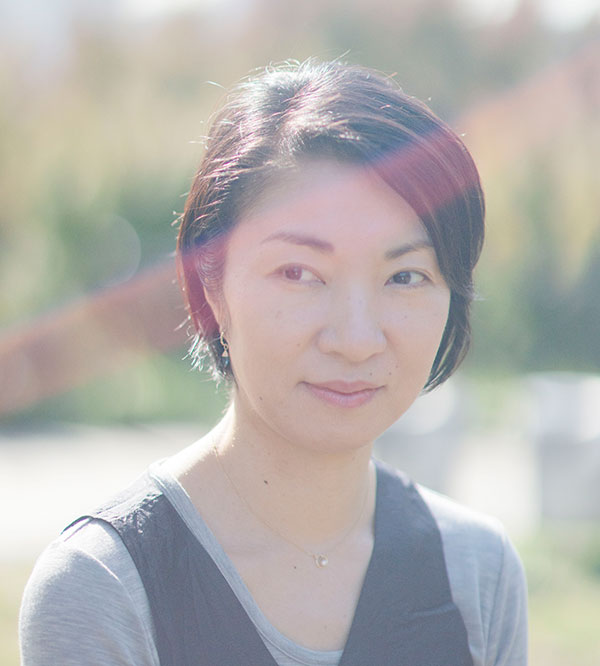
Peter Sau (Head of Artistic Development, Performing Arts / ART:DIS)
Peter Sau is an artist-educator, director, and performer, as well as a specialist in the arts and disability sector. He holds a Professional Diploma in Intercultural Theater (Acting) and a Master of Arts in Advanced Theater Practice from the Royal Central School of Speech and Drama in the UK. In 2017, he founded Project Tandem and worked with D/deaf and disabled artists to provide mentorship and collaborate on performance-making. In 2020, Sau joined ART:DIS as Head of Artistic Development for Performing Arts and has trained emerging artists with disabilities to present multi-disciplinary works for Singapore Writers Festival, Singapore HeritageFest, and Arts & Disability Forum.
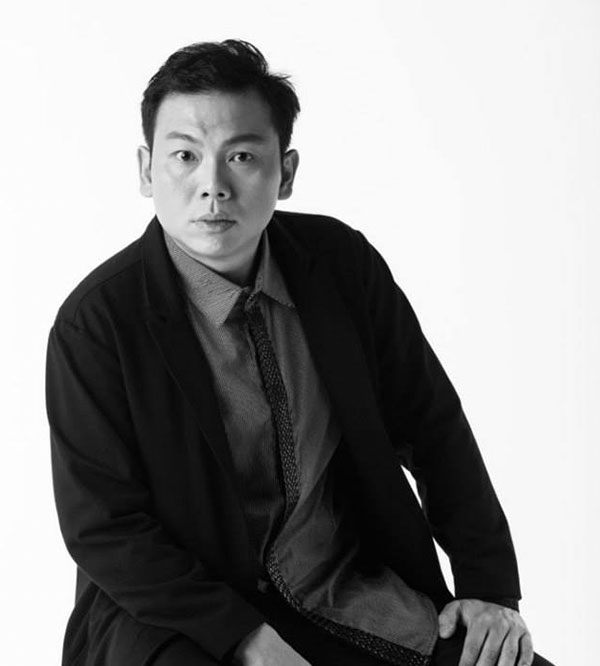
Yukiko Uchida (Professor, Kyoto University Institute for the Future of Human Society)
Yukiko Uchida is a cultural and social psychologist. She holds a PhD in human and environment studies from the Graduate School of Human and Environmental Studies, Kyoto University. After periods as a research fellow (PD) of the Japan Society for the Promotion of Science, visiting researcher at the University of Michigan Institute for Social Research and Stanford University Department of Psychology, full-time instructor at the Koshien University Department of Psychology, and an assistant, associate, and full professor at Kyoto University’s Kokoro Research Center, she took up her current position in 2022. From 2019 to 2020, Uchida was a fellow at the Center for Advanced Study in the Behavioral Sciences at Stanford University. From 2010 to 2013, she was a member of the Cabinet Office’s Commission on Well-being Studies, and has served since 2021 as a member of the Ministry of Education, Culture, Sports, Science and Technology’s Central Council for Education. In 2014, she won the Kyoto University Tachibana Award for Outstanding Women Researchers, and the Japanese Psychological Association International Award in 2016.
http://kokoro.kyoto-u.ac.jp/staff/yukiko-uchida/
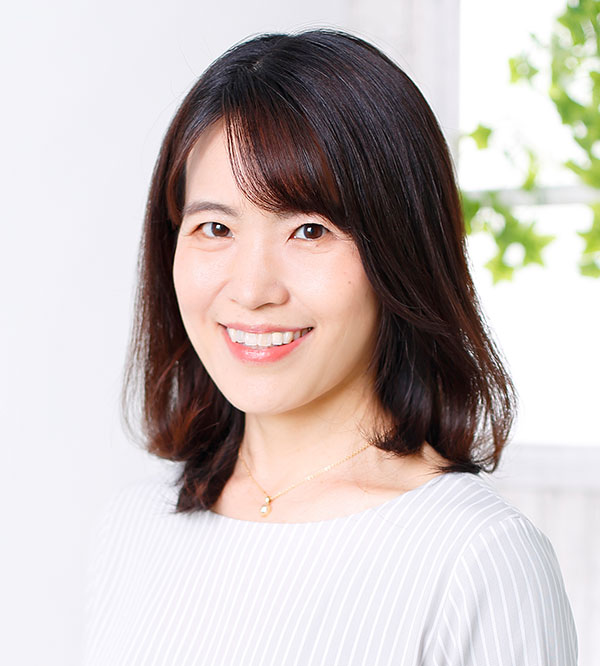
Accessibility and Support
English-Japanese simultaneous interpretation, sign language interpretation (Japanese–Japanese sign language), text-based support (UD Talk), advance availability of materials
P-2 Plenary sessions
July 3 (Sunday), 2022 / 1:15 p.m.–2:45 p.m.
Session2
A Dialogue in Diversity: Inclusion of Differences, Prospects in Cultural Collaboration
Diversity has become a buzzword for corporations, governments, and educational institutions, but what does it actually mean? And how should we promote it? Looking toward the further development of encouraging diversity, this session sincerely engages with the fundamental issues of rectifying and eliminating inequality and structural discrimination, encompasses various identities equally, and attempts dialogue that aims to build a society in which anyone can live. Moreover, it considers the potential and roles of culture- and art-related media looking to stimulate cross-cutting discussion and collaboration, and present visions of such societal approaches.
Speakers
Li Kotomi (Bilingual Japanese-Chinese writer, Translator)
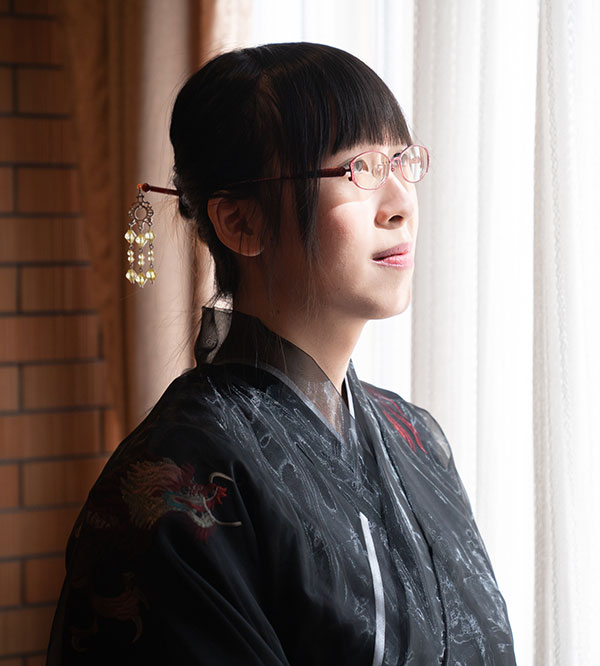
Jong-ok Ri (Painter, Artist)
Born in Tokyo in 1991, Jong-ok Ri graduated from Korea University Graduate School of Advanced Studies in 2018. Her work deals with interdisciplinary perspectives on the nation-state and ethnicity from her position as a third-generation Korean in Japan. She references the compositions of classical paintings and employs symbolic motifs to approach the contexts and structures of the majority, producing two-dimensional works with multilayered structures through collage and other techniques. Ri’s major group exhibitions include Zainichi, the Present, and Art (2014), Musashino Art University × Korea University Suddenly, the view spread out before us (2015), VOCA2020 (2020), and Bubbles / Debris: Art of the Heisei Period 1989–2019 (2021), while her solo exhibitions include L’Empire des signes (2021) and SIMULATED WINDOW (2022).
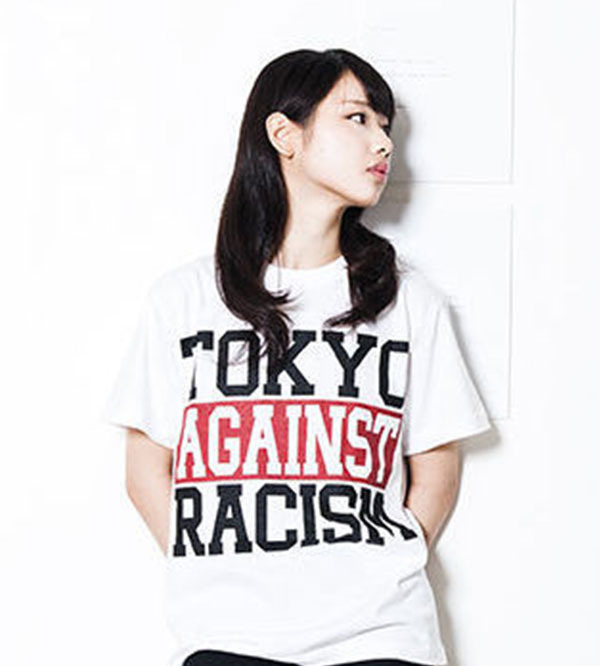
Koichi Iwabuchi(Professor, School of Sociology, Kwansei Gakuin University / Director, Research Center for Embracing Diversity)
After teaching at Waseda University and serving as director of Monash Asia Institute at Monash University, Iwabuchi Koichi took up his current post in April 2020. His research interests are transnational cultural flows, connections, and dialogue as well as cultural citizenship, inclusion, and diversity in multicultural societies. He leads the Trans-East-Asia Multiculturalism project in partnership with the Immigration Museum in Melbourne. In his work, Iwabuchi searches for practice-based initiatives for building an inclusive society in Japan accepting of difference. His recent English publications include Resilient Borders and Cultural Diversity: Internationalism, Brand Nationalism, and Multiculturalism in Japan (Lexington Books, 2015), “Migrancy and Diplomacy: Fostering Cross-Border Dialogue and Collaboration in the Age of Hyper-Mobility” (The Brown Journal of World Affairs, 2018), “Trans-Asia as Method: A Collaborative and Dialogic Project in a Globalised World” (Trans-Asia as Method: Theory and Practices, Rowman & Littlefield International, 2019), and “Dialoguing with diversity: Towards an inclusive and egalitarian society” (Dive-In, 2021).
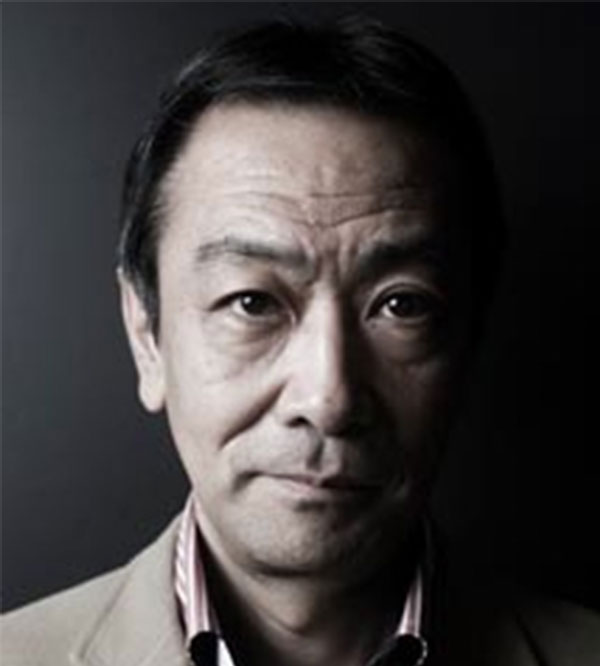
Accessibility and Support
English-Japanese simultaneous interpretation, sign language interpretation (Japanese–Japanese sign language), text-based support (UD Talk), advance availability of materials
P-3 Plenary sessions
July 3 (Sunday), 2022 / 3:15 p.m.–4:45 p.m.
Session3
Inclusive Design as a Driving Force of Culture
Inclusive design, which has lately gained the attention not only of corporations but also cultural institutions, is an approach to design that uncovers latent needs by involving different types of people excluded from conventional design processes, such as the elderly, disabled people, and foreigners. This session shares the premise that anyone may potentially face exclusion (disability) while introducing inclusive design trends in Japan and around the world, and reflecting on how co-creation by people in varied positions can inspire arts and culture, and the potential of such co-creativity.
Speakers
Graham Pullin(Professor, University of Dundee)
Graham Pullin is a designer and author of Design Meets Disability (Japanese edition: O'Reilly, 2022; English edition: MIT Press, 2009). He is Professor of Design and Disability at Duncan of Jordanstone College of Art & Design at the University of Dundee, Scotland, UK, where he co-founded Studio Ordinary, an interdisciplinary meeting space of disability studies and design research. Studio Ordinary explores different and nuanced relationships between design and disability, including Hands of X, which prototyped a made-to-measure prosthetics service within an eyewear retailer and was subsequently an exhibition at the V&A Dundee. Currently, as part of the Imagining Technologies for Disability Futures project, Studio Ordinary is co-creating alternative futures with disabled mentors who use augmented communication. Previously, Pullin was a studio head at the design group IDEO, leading projects from commercial mobile phones for older people to the critical design project Social Mobiles that was exhibited at CG Arts in Tokyo in 2003.
https://www.dundee.ac.uk/people/graham-pullin
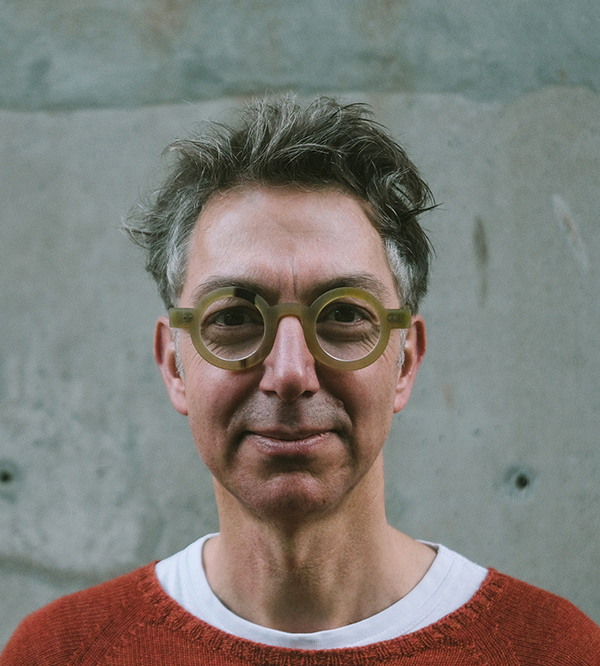
Hisato Ogata (Design engineer / Project Director, Takram)
Hisato Ogata’s interdisciplinary work encompasses both hardware and software across design, engineering, art, and science. His major projects to date include the design concept and styling for the HAKUTO lunar rover, developing the ON THE FLY system that fuses print and digital media, and as director of the 21_21 DESIGN SIGHT exhibition ATHLETE. In 2021, he published Convivial Technology: Towards New Coexistence of Humanity and Technology, exploring future approaches to humanity and technology through the idea of conviviality. Ogata’s many awards at home and abroad include the Good Design Award, Japan Media Arts Festival, and iF Product Design Award in Germany.
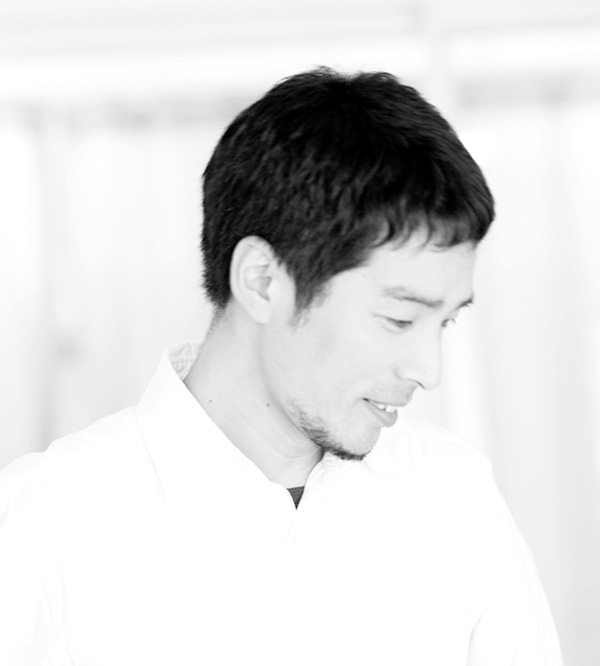
Yutaka Osugi (Professor, Research and Support Center on Higher Education for People with Disabilities, Tsukuba University of Technology / Sign language linguistics / Deaf studies)
After his encounter with sign language at the age of eighteen, Yutaka Osugi underwent a complete transformation in terms of his linguistic culture. After working as a member of a theater company, educator at a vocational school, university teacher in the United States, and administrator at an organization for the d/Deaf, he joined Tsukuba University of Technology in 2006. Alongside teaching sign language linguistics and deaf studies to d/Deaf students, Osugi conducts fieldwork on historical changes and regional differences in sign language. Through his global activities and involvement with the Japanese Federation of the Deaf, Japan National Center of Sign Language Education Japan Institute for Sign Language Studies, Japanese ASL Signers Society, Foundation Modern Puppet Center, and Comité International des Sports des Sourds, he works to gain greater social recognition for sign language and Deaf culture.
http://www.deafstudies.jp

Accessibility and Support
English-Japanese simultaneous interpretation, sign language interpretation (Japanese–Japanese sign language), text-based support (UD Talk), advance availability of materials
P-4 Plenary sessions
July 4 (Monday), 2022 / 10:30 a.m.–12:00 p.m
Session4
Building Connections: Our Cultural Ecosystem
In arts and culture fields, various efforts are underway to create connections among people and new places of belonging through organizing art projects in communities as well as creative activities and workshops. This session focuses on these “connections” that arts and culture bring and their social functions from the perspectives of mutual aid initiatives in Indonesia, and projects for collaborative creativity with disabled people and connecting communities with people from other fields or cultures. In the future, what kinds of projects and structures are needed to cultivate mutual aid frameworks and foster proactive partnerships among different kinds of people? The session looks at social prescribing practices at cultural institutions, and discusses the connections and the cultural ecosystems that arts and culture build as well as the next vision they can bring about.
Speakers
【Change in Speaker】
Hiroko Higashino (Manager & Performer, SLOW LABEL) will be speaking on behalf of Yoshie Kris (Art Producer / Director, SLOW LABEL).
Hiroko Higashino (Manager & Performer, SLOW LABEL)
Gatari Surya Kusuma (Struggles for Sovereignty: Land, Water, Farming, Food)
Gatari Surya Kusuma lives and works in Yogyakarta, Indonesia. After finishing her bachelor’s degree at the Indonesian Institute of Art, she joined KUNCI Study Forum & Collective, a group that focuses on knowledge production and critical thinking related to culture, society, politics, and art. She has also been part of Bakudapan Food Study Group since its inception. With Bakudapan, she works collectively to develop tools for studying and researching food, ecology, politics, and culture. In addition, she has experience in organizing learning programs, research, editing, participating in fellowship programs, and initiating workshops. Gatari is currently working with Struggles for Sovereignty, Bakudapan Food Study Group, and Bodies of Power / Power for Bodies on a platform for practitioners related to food, social, and ecological justice.
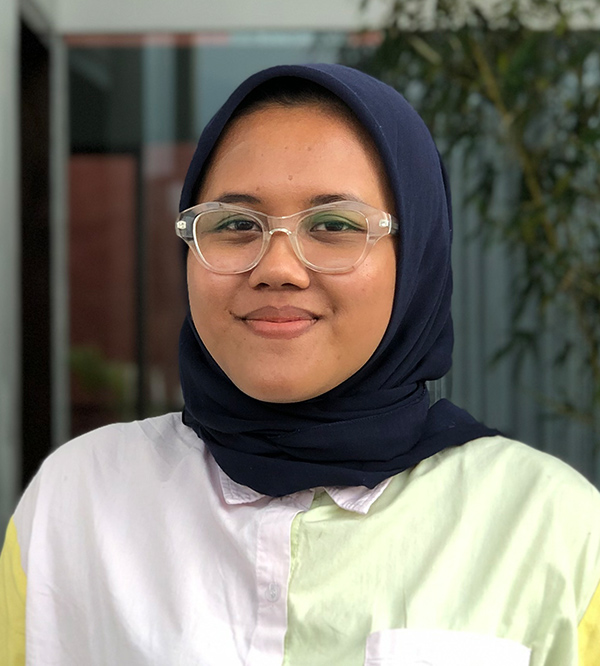
Nisa (Struggles for Sovereignty: Land, Water, Farming, Food)
Khairunnisa (Nisa) is an independent researcher and creative worker. She co-founded Bakudapan Food Study Group after she graduated from the Cultural Anthropology Department at Gadjah Mada University. She is currently an active member in Struggles for Sovereignty. Through her experience working in collectives, she gained interest in experimenting with research practices and learning methods. Nisa’s ongoing research interests are care and domestic works, solidarity and knowledge production which she actively exercises in her practice personally and collectively.
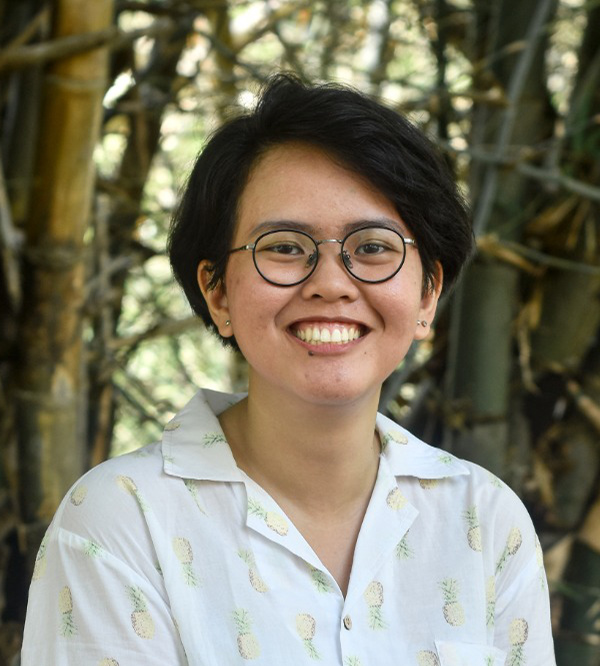
Torao Ohsawa (Senior Researcher, Center for Arts and Culture, NLI Research Institute / Chair, Arts NPO Link)
In 2003, Torao Osawa undertook training in theater management near Seattle, United States, on the Agency for Cultural Affairs Program of Overseas Study for Upcoming Artists. He is the co-author of Future Arts Management: Toward Social Sharing (2011), Reconstruction out of Culture: Citizens, Natural Disaster, and Alios Iwaki Performing Arts Center (2012), and Social Art Lab: Opening Up Communities and Society (2018). Osawa is a director of the Japan Association for Cultural Policy Research and program officer for Sakai Arts Council. Based in Fukuoka but active around the country, he researches cultural policy and arts management, and monitors regional culture as a kind of ecosystem.
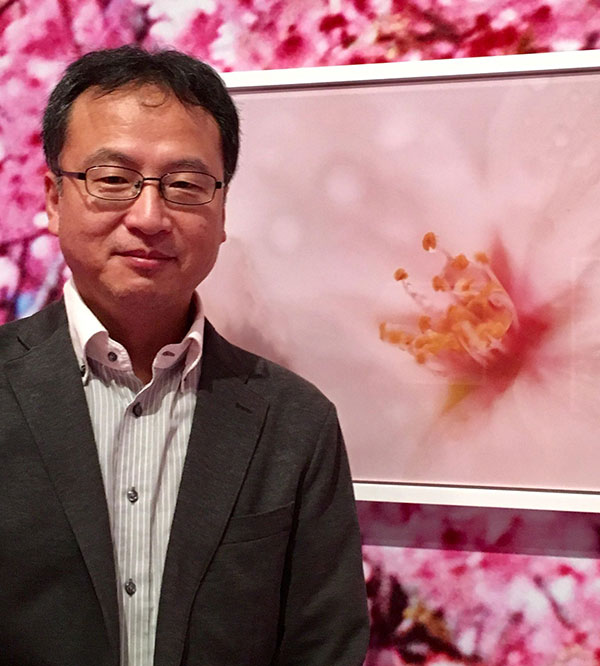
Accessibility and Support
English-Japanese simultaneous interpretation, sign language interpretation (Japanese–Japanese sign language), text-based support (UD Talk), advance availability of materials
P-5 Plenary sessions
July 4 (Monday), 2022 / 1:15 p.m.–2:45 p.m.
Session5
Digital Creativity: A Revolutionary Force for Our Social Challenges and Values
Due to advances in information technology, wholly new kinds of services and approaches are emerging, such as obtaining information matching each user’s physical attitudes, language, and environment, and developing technology from the inclusive perspectives of disabled people. This session introduces initiatives for reaching disabled, elderly, and other users, not only utilizing technology but also applying it through creative ideas and concepts. The session considers changes to society’s image of disabilities that are enjoyable for users as well as possibilities that open up the means of social participation, all thanks to digital technology and the power of creativity.
Speakers
Meiza Suzuki (Project Manager, Avatar Robot Café, Ory Laboratory)
Meiza Suzuki became involved with the Avatar Robot Café and the robot OriHime when he interned at the first version of the project while working at an ad agency in 2018. He subsequently joined Ory Laboratory in 2019 and was the project manager for Avatar Robot Café DAWN ver. β, which opened last year. Accolades at the 2021 Japan Media Arts Festival and Good Design Award led to participating in their official programs. Suzuki also produced an on-site program at Ars Electronica 2021 and an OriHime event at a recent Hideaki Anno exhibition. In this way, he continues to search for OriHime’s potential to function as a new cultural touchpoint for people who otherwise may fail to make contact with culture and the arts.
https://dawn2021.orylab.com/
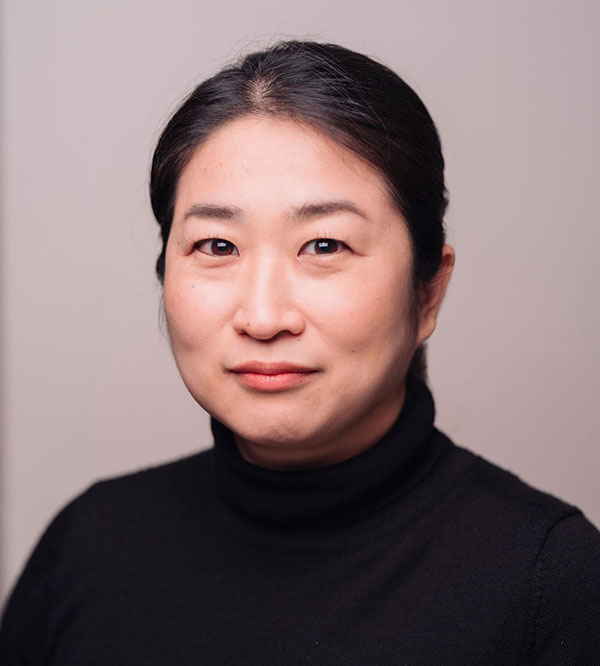
OriHime (Pilots: Sae-chan)
Message from Sae, OriHime Pilot at Avatar Robot Cafe
I was diagnosed with a somatic symptom disorder and it is difficult for me to go out. Through OriHime, though, I could interact with society and my world that was previously confined just to my home suddenly expanded. I already used to take part in reading groups and liked reading aloud to others, so with OriHime, I took on the challenge of directing a dramatic reading or theater play. Not only in terms of enjoying culture and arts, but by expanding what we can do as producers, I hope that possibilities increase for many people in the same situation.
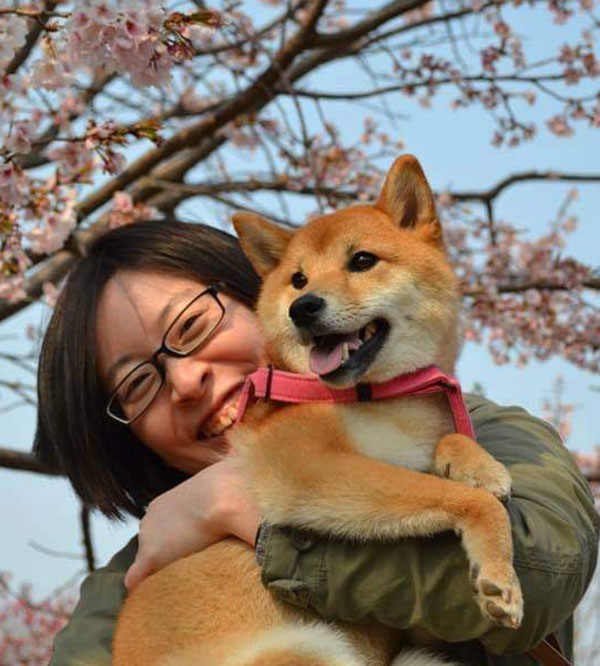
OriHime (Pilots: Yui)
Message from Yui, OriHime Pilot at Avatar Robot Cafe
Influenced by my father long ago, I like to draw pictures, and take part in fairs where I draw portraits for people and sell original merchandise. Because of the pandemic, I haven’t been able to attend so many events, but OriHime has allowed me to show my work to people, and also go to Design Festa and COMITIA—events I had long desired to attend—and so become able to work in a whole new way, regardless of the weather or physical distance. In the future, I would like to have a solo exhibition in Japan or abroad.
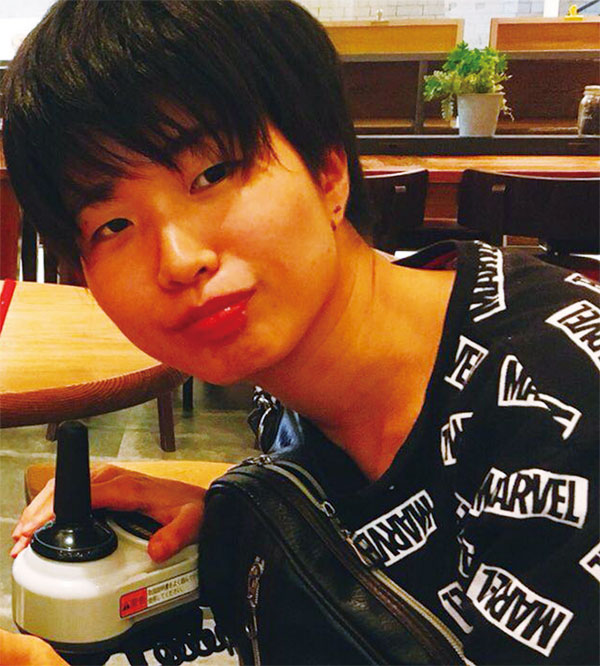
Tetsuya Konishi (Product Designer / Representative Director, exiii design Inc.)
Tetsuya Konishi graduated with a master’s degree from Chiba Institute of Technology and then joined Panasonic as a video camera and wearable device designer. After leaving Panasonic, he founded exiii in 2014. His creative work includes the design and art direction of the handiii and HACKberry open-source prosthetic hands. In 2018, he founded exiii design. Konishi undertakes a wide range of projects with a focus on product design for wearables, robots, welfare devices, and more. Examples of projects include a robotic prosthetic leg for Hirotada Ototake and Sony Computer Science Laboratories, and C-FREX, a long leg brace created in collaboration with the National Rehabilitation Center for Persons with Disabilities.
https://exiii-design.com/
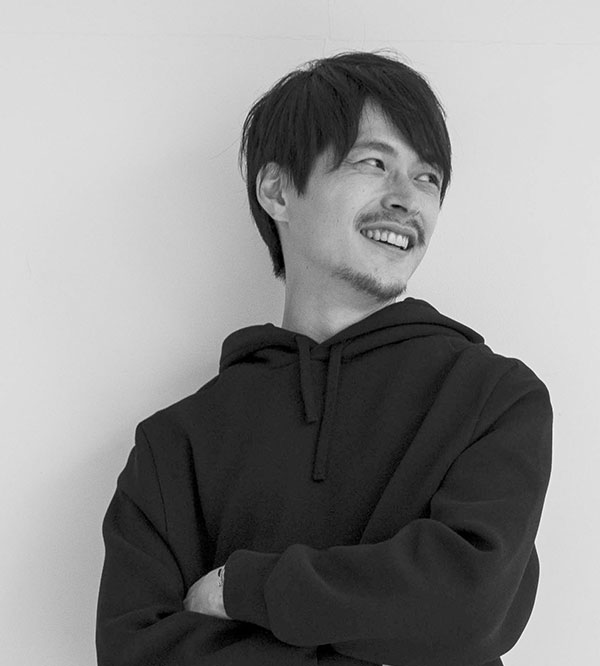
Michiaki Matsushima (Editor-in-Chief, WIRED Japan)
As editor-in-chief of the Japanese edition of WIRED, the media outlet that implements the future, Michiaki Matsushima oversees WIRED.jp, the SZ Membership “experiment zone,” the print magazine (whose latest issue is a special one about Web3), the WIRED Conference, and the Sci-Fi Prototyping Lab. After serving as chief editor in the Arts and Sciences Books Editorial Department of NHK Publishing, he took up his current position in 2018. As a book editor, Matsushima has produced a wide range of titles, including the Japanese editions of Makers: The New Industrial Revolution by Chris Anderson, A Man Without a Country by Kurt Vonnegut, Extremely Loud and Incredibly Close by Jonathan Safran Foer, and Born to Run: A Hidden Tribe, Superathletes, and the Greatest Race the World Has Never Seen by Christopher McDougall. His translations include Novacene by James Lovelock. He is a Moonshot Ambassador for the Cabinet Office.
https://wired.jp/
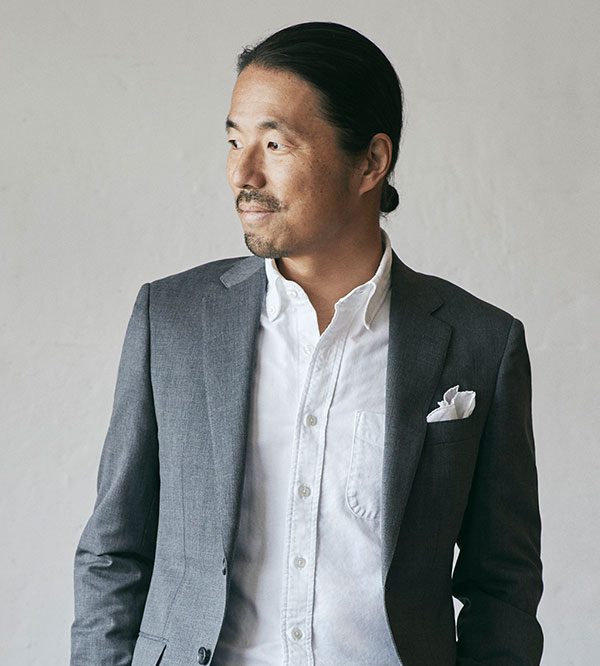
Accessibility and Support
English-Japanese simultaneous interpretation, sign language interpretation (Japanese–Japanese sign language), text-based support (UD Talk), advance availability of materials
P-6 Plenary sessions
July 4 (Monday), 2022 / 3:15 p.m.–4:45 p.m.
Roundtable
The final session of the international conference is a roundtable with committee members, guest speakers, and an in-person and online audience. Comprising not only the main international conference itself but also a showcase, intensive workshop camp, and networking programming, this conference features more than 100 specialists, organizations, and creatives from five countries and regions. In order to learn together about social inclusion through arts and culture as well as collaborate creatively, participants discuss and present shared visions for the future regarding next approaches to cultural facilities and social inclusion in arts and culture.
Speakers
Sawako Inaniwa (Senior Curator, Learning, Independent Administrative Institution National Museum of Art)
Maureen Goh (Executive Director / ART:DIS)
Peter Sau (Head of Artistic Development, Performing Arts / ART:DIS)
Gatari Surya Kusuma (Struggles for Sovereignty: Land, Water, Farming, Food)
Nisa (Struggles for Sovereignty: Land, Water, Farming, Food)
Chieh-Chyi Lin (Assistant Curator, Public Service and Education Division/National Museum of Taiwan History)
Moderator
Tatsuya Ito (Specially Appointed Professor, Tokyo University of the Arts Public Collaboration Center)
Tatsuya Ito obtained a PhD from Tokyo University of the Arts. He specializes in art education and has been involved in planning a wide array of cultural programs, including directing art projects. Since 2011, he has worked for the Tobira Project and Museum Start iUeno in partnership with Tokyo Metropolitan Art Museum. Ito is a member of the steering committee overseeing the renovation of Hachinohe Art Museum. He is the co-author of Designing Society Through Art: A Collaboration Between Citizens and Cultural Institutions (2018, English edition 2021) and Museums Innovating Society: Creating New Communities through Culture (2015).
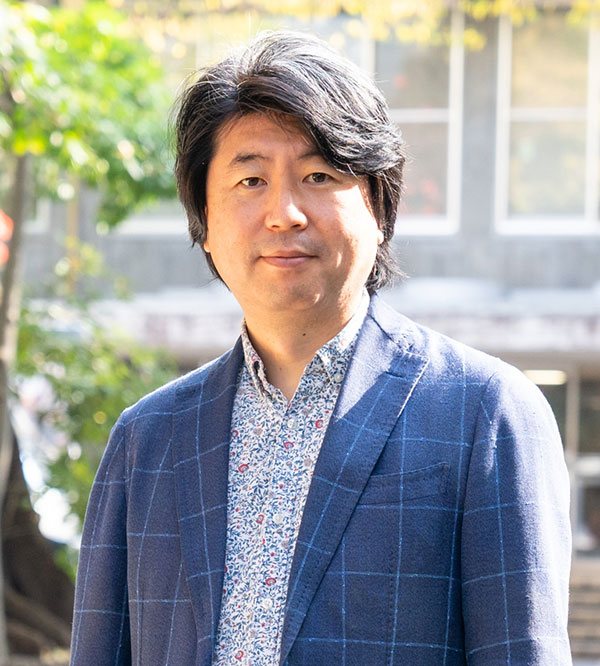
Commentator
Masanori Aoyagi (Historian, Archaeologist / Director General, Arts Council Tokyo)
Accessibility and Support
English-Japanese simultaneous interpretation, sign language interpretation (Japanese–Japanese sign language), text-based support (UD Talk), advance availability of materials
